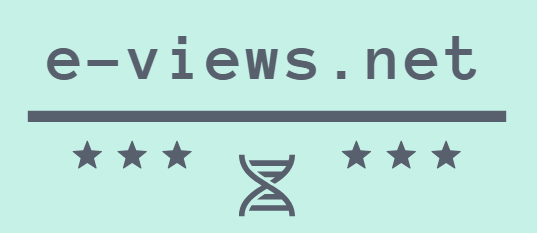You understand the importance of boosting your SEO, but have you considered how vital a strong backlink profile is in this process? By auditing your current backlinks, you can identify which ones are helping and which might be dragging your rankings down. It's not just about collecting links; it's about ensuring they're high-quality and from reputable sources. Think about leveraging guest blogging and social media to diversify your links, but how do you ensure ongoing success? There's a strategic approach to this that can make a significant difference in your search engine visibility.
Analyze Your Current Backlinks
Analyzing your current backlinks is a critical step in optimizing your SEO strategy. Start by conducting a comprehensive backlink audit to understand the sources and quality of your links. Use tools like Ahrefs or SEMrush to gather data on your backlink profile.
Look for metrics such as Domain Authority (DA), Page Authority (PA), and the relevance of linking domains to your niche. High DA and PA scores often correlate with improved search rankings, so prioritize these in your analysis.
Next, identify patterns in anchor text usage. Ensure it's relevant and varied to avoid penalties from search engines for over-optimization. Keywords in anchor texts should reflect the content they link to, enhancing user experience and search accuracy.
Evaluate the diversity of your link sources. A diverse backlink profile is crucial; it signals to search engines that your content is credible and authoritative.
Analyze referring domains' geographic locations and industries to ensure a broad and natural link distribution.
Focus on Quality Over Quantity
While understanding your current backlinks is foundational, the next step emphasizes the significance of quality in your backlink strategy. High-authority sites linking to your content can significantly boost your SEO performance. In fact, data shows that backlinks from reputable domains carry more weight in search engine algorithms, pushing your site higher in search rankings.
You must prioritize acquiring links from sites with high Domain Authority (DA), as these are viewed as more credible by search engines.
When focusing on quality, analyze the relevance of the linking site to your industry. Backlinks from niche-specific sites often provide more value than those from unrelated domains. Studies indicate that relevance and authority combined can lead to a 2.5 times higher impact on your search engine ranking.
Diversifying your backlink sources is also crucial. Relying heavily on a single domain can trigger search engine penalties. Instead, aim for a diverse backlink profile by targeting various high-quality sources.
Use analytical tools to track the impact of these backlinks on your site's performance regularly. By emphasizing quality over quantity, you'll cultivate a robust backlink profile that enhances your SEO efforts effectively.
Leverage Guest Blogging Opportunities

Guest blogging, when executed strategically, can significantly amplify your backlink profile. You need to focus on high-authority sites that align with your niche, as they provide valuable, contextually relevant backlinks.
Research indicates that backlinks from authoritative sites can boost your domain authority by up to 50%. Begin by identifying websites with a domain authority above 50 using tools like Moz or Ahrefs. This ensures you're not just getting any backlink, but one that truly enhances your SEO performance.
Crafting content that resonates with the host site's audience is crucial. Quality content is more likely to be accepted and shared, increasing your exposure and backlink potential.
Use keyword-rich anchor texts to ensure your links are both relevant and effective. Data shows that anchor texts with primary keywords improve search rankings by 30%.
Monitor your guest blogging results by tracking referral traffic and changes in your domain authority. Analyze which posts yield the highest quality backlinks and adjust your strategy accordingly.
Consistent guest blogging on reputable sites can lead to a robust, diversified backlink profile, essential for long-term SEO success. Remember, quality and relevance should always be your guiding principles.
Utilize Social Media for Backlinks
An increasing number of businesses are discovering that social media platforms can be a powerful source for building backlinks. These platforms don't just amplify your content's reach; they enhance your backlink profile's diversity and authority. By strategically sharing content across platforms like Facebook, Twitter, and LinkedIn, you can attract more inbound links from credible sources. This tactic is not only cost-effective but also data-driven, focusing on user engagement and keyword optimization.
Let's analyze the effectiveness of different platforms:
| Social Media Platform | Average Engagement Rate (%) | Backlink Potential (High/Medium/Low) |
|---|---|---|
| 0.09 | Medium | |
| 0.05 | Low | |
| 0.54 | High |
Leverage Facebook for its vast user base and targeted ad capabilities. Twitter's real-time nature helps in generating buzz, though its backlink potential remains low. LinkedIn stands out with a high engagement rate, making it ideal for industry-specific content. Focus on keyword-rich content and integrate relevant hashtags to boost visibility. Engage with your audience by responding to comments and sharing user-generated content. This approach not only strengthens your backlink strategy but also builds a loyal community around your brand.
Monitor and Disavow Toxic Links

To maintain a strong backlink profile, it's crucial to monitor and disavow toxic links effectively. Toxic links can harm your website's SEO by reducing your domain authority and search engine rankings.
Start by using tools like Google Search Console or Ahrefs to analyze your backlink data. These platforms provide insights into the quality of your backlinks, helping you identify harmful links that could affect your site's performance.
Focus on identifying links from spammy domains, unrelated niche sites, or those with a high spam score. Once you've pinpointed these toxic links, it's time to take action.
Reach out to the webmasters of the offending sites and request link removal. If this proves unsuccessful, utilize Google's Disavow Tool, which allows you to inform Google that you don't consider these links part of your backlink strategy.
Regularly monitoring your backlink profile isn't a one-time task. Set up alerts and schedule periodic audits to ensure you're staying on top of potential threats.
Conclusion
To boost your SEO, prioritize a data-driven approach. Start by analyzing your current backlinks to understand their impact. Focus on acquiring high-quality links rather than sheer numbers, targeting authoritative, niche-specific sites through guest blogging and strategic social media sharing. Consistently monitor your backlink performance using analytical tools, and promptly disavow any toxic links. By maintaining a diverse and credible backlink profile, you'll enhance your site's authority and improve your search engine rankings.


Leave a Reply